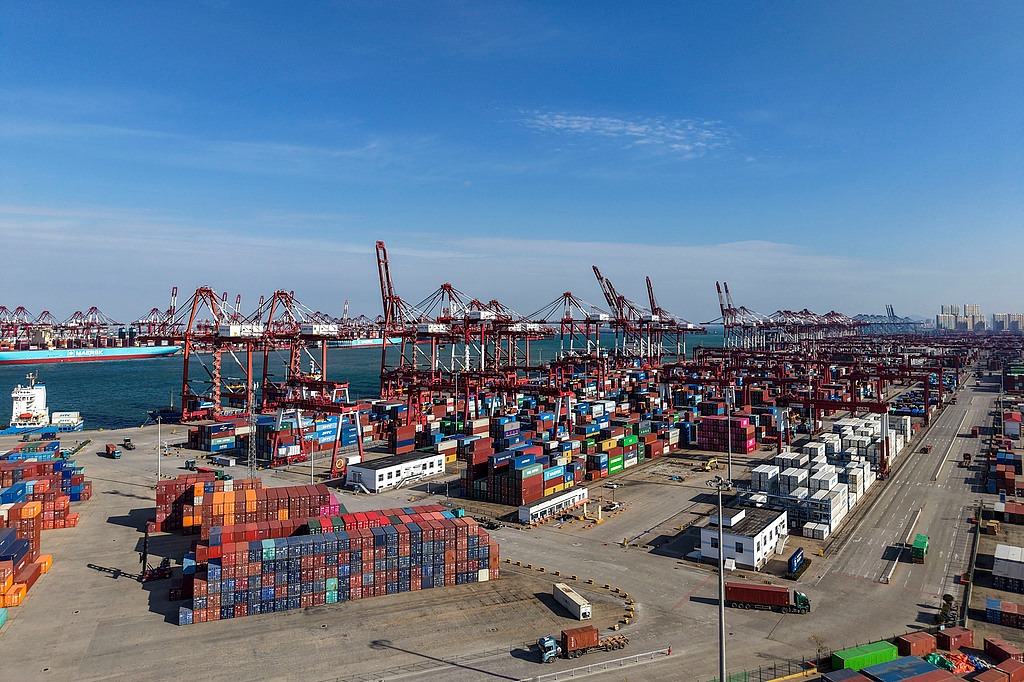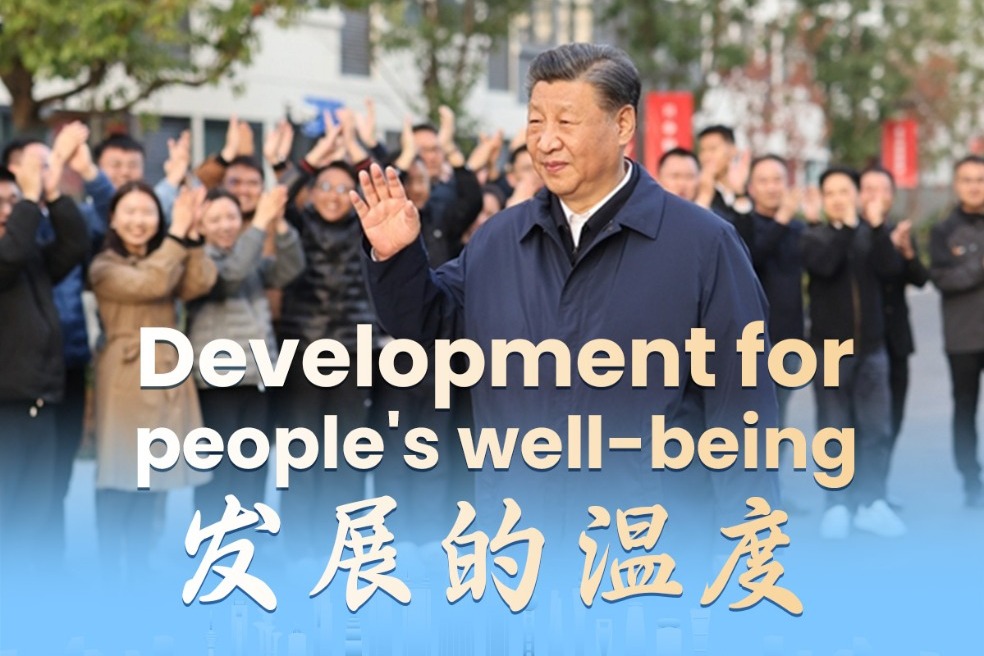China's growth brings chances for US too


Policymakers in Washington are bound to recognize, sometime in the future, that aligning the economic growth and national security of China and the United States to ensure peaceful coexistence is essential for sustaining the US economy.
After trying aggressive policies that have failed, the United States will come to view China not as an adversary that can be defeated but as a partner whose modernization is reshaping the global economy. Future US administrations will recognize that pragmatic engagement with China, given the latter's economic achievements, is essential to the US' economic success, and that zero-sum competition will weaken the US' economic growth and national security.
China's proposals for the 15th Five-Year Plan (2026-30) emphasized the importance of high-quality development, AI and robotics, all with the aim of becoming self-sufficient in technology and high-tech manufacturing. China is rapidly expanding its digital economy and strengthening its global supply chains to make them more resilient to external shocks. And it is expected to expedite the practical application of AI, quantum computing, robotics, and advanced materials.
Continued investments by the Chinese government and private enterprises will further strengthen manufacturing and technology value chains, raising growth and boosting innovation. China will also expand its digital infrastructure in order to support a data-driven economy, with nationwide capabilities in data centers, connectivity and information technology designed to catalyze productivity and cross-border commerce.
China's focus is on automation and smart production to improve efficiency, quality and per capita productivity. The country's advantage is that it can design and manufacture sophisticated goods at scales that other economies cannot. To improve chip design and manufacturing, China is expected to issue favorable policies and give incentives, which in turn will promote innovation, cultivate talents, and boost capacity-building, helping the country to catch up with, or even excel, developed nations in some industries.
The proposals reiterated the importance of ecological civilization. Clean energy technology and electric vehicles will likely receive greater attention in the 15th Five-Year Plan as China takes measures to reduce carbon emissions, and ensure energy security. And green finance and prudent macroeconomic management will continue to support eco-friendly development, and social and regional development based on socialism with Chinese characteristics. This will help improve Chinese peoples' living standards.
China's enhanced intellectual property rights protection system and cybersecurity framework will boost economic and technological innovation, and better safeguard its core national interests.
As zero-sum game strategies against China are doomed to fail, pragmatism will prompt the US to devise "mutually assured prosperity" policies with China, because it is the only viable path to sustain the US' economic growth, maintain global stability, promote innovation, and achieve common prosperity.
The US' shift from containment to constructive collaboration will be necessitated by its own economic and national security needs. Hopefully, a new generation of US politicians will emerge who recognize the folly of Washington's current policies seeking to contain China fail and undermine the US' own growth.
The fact that China is taking targeted measures to boost domestic consumption, advance technological development, improve digital finance, and promote innovation should make US policymakers realize that China's goal is not to weaken the US economy but China's development brings opportunities for the rest of the world including the US.
There are reasons for Chinese and American policymakers to identify areas for constructive collaboration. New technologies such as AI are changing the national security needs of both the US and China. In such a situation, China and the US have no option but to coexist peacefully by devising and coordinating "mutually assured prosperity" policies that support shared growth and help safeguard national security.
More important, the US must find its new role in a multipolar global governance system to sustain its growth and better safeguard its national security.
The author is chairman of America-China Partnership Foundation.
The views don't necessarily represent those of China Daily.
If you have a specific expertise, or would like to share your thought about our stories, then send us your writings at opinion@chinadaily.com.cn, and comment@chinadaily.com.cn.
































